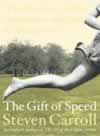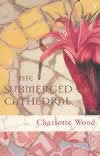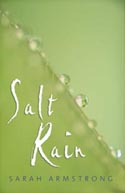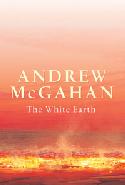This has been sitting around for over a week and I've been more than a little slack about getting back to it. I plead the fifth - otherwise known as work-pressure, which also explains the thin and sparse postings of late.
1. The person who passed the baton to you.
Genevieve from You Cried for Night, possibly as a payback for an earlier meme I passed along.
2. Total volume of music files on your computer.
If you'd asked me six months ago I would have said none but I've discovered the joys of storing tracks on the hard drive and listening in when I'm working. This is especially useful in libraries which seem to be getting noiser and noiser. Oh yes, just a touch over 3 Gb. All of this is copied from CDs I have around the house. Haven't got into downloading as yet. As I won't let my daughter download without paying I'd be on very shakey moral grounds if I ventured there.
3. The title and artist of the last CD you bought.
This is where my dinosaur side comes to the fore - Devils & Dust by Bruce Springsteen. This one ranks with Nebraska and The Ghost of Tom Joad. It's bleak, basic and bloody good. I've been a fan since 1975 and reckon he keeps on maturing as a songwriter and artist.
4. Song playing at the moment of writing.
"Searching for a Heart" by Warren Zevon, from his live Learning to Flinch album. I only got to see Zevon once, in Melbourne in 1992 when he was on the tour that produced this album. It's hard to think that I won't be able to buy any more of his records. I found it a big shock when he died about 18 months ago: I'd been following him since Excitable Boy. The tribute album, Enjoy Every Sandwich, which was released last year was pretty damn good as well.
5. Five songs you have been listening to of late (or all-time favorites, or particularly personally meaningful songs)
I've got a fair chunk of my music collection stored on the hard drive now so I just set the play selection to random and let it run wherever it wants - kinda like the iPod shuffle function. You get some very strange juxtapositions that way. So we'll talk about favourites rather than what's on high rotation.
"Thunder Road" from Born to Run by Springsteen - I'm with Nick Hornby here in thinking I've heard this song more than any other I can name. One of the all-time great rock songs. "The screen door slams, Mary's dress waves, Like a vision she dances across the porch as the radio plays, Roy Orbison singing for the lonely, Hey, that's me and I want you only..." Fantastic stuff. I was 21 when I first heard this. Actually, the best age to hear music that stays with you for the rest of your life is probably 16. The age when you know all the words to all the songs.
"Hard on Me" from Mock Tudor by Richard Thompson. Not his greatest album but hell, even a medium-level Thompson album is better than just about anything else going around. Thompson stated in an interview once that this song was about the troubled relationship he had with his father; I always heard it as the next-to-last cry of a failing love affair.
"The Power and the Passion" from 10, 9, 8, 7, 6, 5, 4, 3, 2, 1 by Midnight Oil. This album helped me get through one failed relationship - played really, really loud. One of the great live bands. The title of the track might just as well have been their live performance motto.
"Roland the Headless Thompson Gunner" from Excitable Boy by Warren Zevon. I was a slow starter on the music scene, so my 22 was probably everyone else's 16 (see above). I discovered Zevon around the same time as I found Springsteen, Tom Petty and Jackson Browne. I'll admit to being more than a tad West Coast fixated at the time. That's okay. All four of these guys made it out the other side and, with the exception of Zevon now, are still putting out good stuff.
"Losing my Religion" from Out of Time by R.E.M. During the early to mid-nineties I was probably as interested in R.E.M. as anyone else. I had to choose one song and this is one that got me interested. "...that was just a dream..."
So that's five, but what about Peter Gabriel, Talking Heads, Jackson Browne, Tom Petty, Cold Chisel, Steely Dan, Crowded House/Neil Finn, Neil Young, and John Martyn? Just no room for them all.




